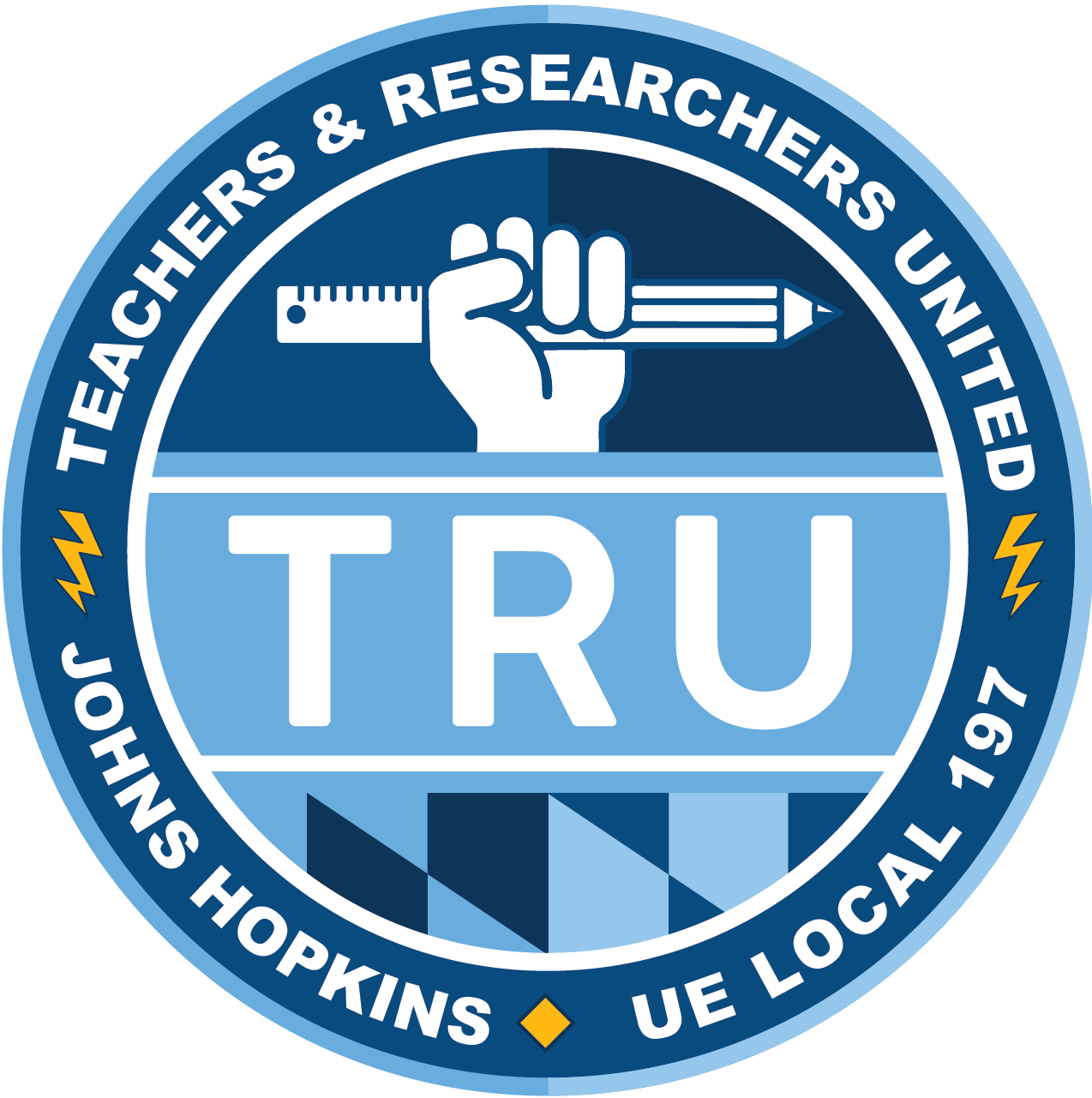After electing a bargaining committee of 22 grads from across the university, collecting over 1,100 bargaining survey responses, and ratifying our contract proposals as a membership, we go to the bargaining table for the first time. Grads rally outside as our committee begins negotiations in Shriver Hall. Negotiations continue throughout the summer.
Archives: Timeline Stories
Timeline Post Type Description
Over 2,000 grads — a supermajority of all Ph.D.s enrolled at JHU — make their way to polls on Homewood, East Baltimore, and SAIS to vote YES for the union on January 30 and 31. Votes are counted on February 1 to reveal a historic margin of victory: 2,053 yes votes to 67 no votes, 97%. WE HAVE A UNION!!
Two weeks after our rally, mid-year raise announcements begin–a tribute to our organizing power! On November 9, the Krieger School of Arts and Sciences announces an increase to the minimum stipend, from $33,000 to $34,500. More scattered raises follow. However, some programs still lack stipends; $34,500 remains well below the estimated cost of living in Baltimore at this time ($40,000).
At a 400-person rally on Keyser Quad, Hopkins grads start signing union cards calling for official representation by TRU-UE. 1,582 grads sign on day one, and a supermajority of grads have signed within a few weeks.
TRU starts working with UE to build toward a union election process through the National Labor Relations Board (NLRB), which has now swung back in favor of grad labor after several years of hostility under the Trump administration.
TRU’s campaign for relief for grad workers impacted by COVID bears fruit on Friday April 2nd 2021, when it is announced by President Daniels and Provost Kumar that the university will be directing $5 million towards aid for PhD students! This comes in the form of 100 travel and research awards averaging about $5000, and 200-300 dissertation completion awards that include tuition, health insurance, and stipend for one semester. It’s not sufficient to mitigate the financial impact of COVID on graduate workers, but marks a victory worth celebrating.
After our calls for COVID-19 relief appear to have fallen on deaf ears, TRU members take to the streets in a vehicle caravan from the Medical Campus up to the Homewood campus, to raise the profile of our campaign. Even so, a few weeks later graduate students are excluded from university employee bonus pay, spurring a new TRU letter writing campaign. A few weeks later, the Homewood Faculty Assembly (HFA) passes a resolution in support of TRU’s demand for universal grad pay extensions. The resolution specifically calls on the admin to tap into the sizable reserves of the central university to fund graduate pay extensions.
TRU collects over 800 signatures on a petition articulating the relief necessary to protect grad workers, including universal extensions of grad pay, no retribution for delayed research progress, suspension of non-resident tuition fees, and extensions of health insurance coverage. TRU members author a series of op-eds to draw attention to the conditions grad workers are facing, including one in the Baltimore Sun, and share testimonials on social media about how COVID-19 has affected their working conditions.
TRU members organize around financial insecurity and the need for at least six years of guaranteed pay for PhD students, after their core concerns are left unaddressed by the Provost’s office. Later in the year, as the Trump administration moves to threaten grad collective bargaining rights, TRU collects hundreds of comments from supporters opposing the rule change and delivers them in DC alongside several other graduate worker unions.
Over the course of the Fall 2018 / Spring 2019 academic year, TRU works in coalition with other groups, including the Hopkins Coalition Against ICE working to end JHU’s contracts with Immigrations and Customs Enforcement, Students Against Private Police seeking to stop the university’s plans for a police force, and the JHToo movement, formed to support survivors of sexual assault and hold the university accountable for mishandled cases. The year culminates in an over one-month sit-in and occupation of Garland Hall. Hundreds of students and community members participate, in an effort to halt the militarization of the university, and act in solidarity with local groups like West Wednesdays which are organizing against police violence in nearby communities.
